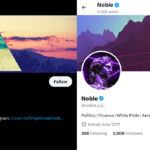
An Australian father has voiced his frustration after hearing gambling ads from Sportsbet while streaming children’s songs such as Frozen and Bluey on Spotify, as reported by The Guardian.
“I love Spotify and completely understand your need to generate income,” the father said in his statement.
“However, playing Sportsbet’s ads before and after Disney songs is inappropriate and potentially damaging to my children.”
The father, who chose to remain anonymous, uses his Spotify account to play music for his children. Although Spotify’s advertising guidelines stipulate that gambling ads are only played to account holders aged 18 or older, the father argued that such ads have no place near children’s content. He called for the introduction of an opt-out feature for gambling ads, particularly for users with children.
Children, he noted, are impressionable and susceptible to messages that could normalize gambling behaviors.
Sportsbet pauses advertising
In response to the complaint, Sportsbet announced it would temporarily halt its advertising on Spotify to address the issue. A company spokesperson emphasized that stringent controls were in place to prevent gambling ads from targeting children.
“Sportsbet’s advertising on Spotify and all social media channels uses age-gating measures and excludes kids and family content as an additional control,” the spokesperson said. “We are disappointed this has happened and have paused advertising on Spotify while the issue is rectified.”
Spotify has yet to comment on the matter, but the situation has caught the attention of policymakers and public health advocates.
Broader concerns over gambling ads
The father’s complaint aligns with growing public unease about gambling advertisements, particularly their reach and influence on young audiences.
In June 2023, a bipartisan parliamentary inquiry recommended a phased but comprehensive ban on gambling ads, which has yet to be enacted.
Independent Australian Capital Territory Senator David Pocock, who was contacted by the father, called for urgent government action.
“Platforms like Spotify can pretend all they want that they don’t allow this to happen, but clearly it is happening,” Pocock said, urging the federal government to legislate a gambling ad ban in early 2025, before the next election.
Samantha Thomas, a professor of public health at Deakin University, shared similar concerns.
“Parents are rightfully concerned about the multiple ways in which children could be exposed to gambling advertising,” Thomas said. She advocated for a “tobacco-style ban” on gambling ads to eliminate their reach to young audiences.
Research supports these concerns.
A study published in the journal Health Promotion International found that 70% of surveyed parents were at least moderately concerned about the exposure of children to gambling ads.
Federal government faces pressure
The communications minister, Michelle Rowland, has apologized for delays in responding to the Murphy report, which provided recommendations on gambling reforms.
“As we have seen in the past, bad policy designs lead to bad outcomes,” Rowland said.
“It is important we take the time to get these reforms right.”
However, Pocock and others argue that the government has delayed action long enough.
“Perhaps the renewed focus of Australian parents on the behavior of technology companies further encourages your investment in an opt-out feature,” he wrote in his complaint to Spotify.
Resources for those affected
For Australians seeking assistance with gambling-related issues, help is available through Gambling Help Online at 1800 858 858 and the National Debt Helpline at 1800 007 007.





